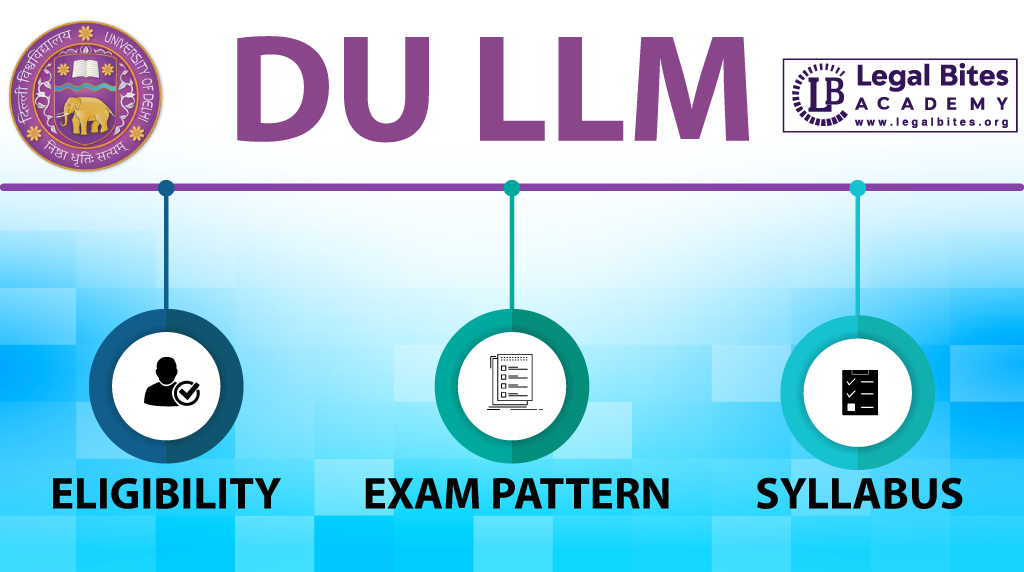The University of Delhi conducts DU LLM Entrance Exam for admission into LL.M course offered at Faculty of Law, University of Delhi. The Faculty of Law offers Master of Laws (LL.M.) (2 year and 3 year).
- LL.M. Two Year (Four Terms) Course – This is a full-time course meant only for those who are not in employment or engaged in any trade, profession and business or occupation. The student is required to give an affidavit for the same at the time of admission.
- LL.M. Three Year (Six Terms) Course – This course is meant for all applicants including those who are in employment or engaged in any trade, profession and business or occupation.
Eligibility
- A three-year/five-year LL.B. Degree from the University of Delhi or any other Indian or Foreign University recognized as equivalent by the University of Delhi.
- Candidates appearing in the qualifying degree examination are also eligible to appear in the LL.M Entrance test.
- For Unreserved category candidates at least 50% marks or an equivalent grade point in the aggregate in the qualifying degree examination. For SC/ST/OBC/CW/PWD Category Candidates at least 45% marks or an equivalent grade point in the aggregate in the qualifying degree examination.
Exam Pattern
- The DU LLM Entrance Exam is held ONLINE.
- The Test shall be of two hours duration. The Test Paper will consist of one question paper containing 100 objective-type questions with multiple choice answers
- The language of the Entrance Test shall be English.
- Each question shall carry four marks. For every correct answer, four marks will be awarded and for every incorrect answer, one mark will be deducted. No mark will be awarded or deducted for a question that is left unanswered.
Syllabus – DU LLM Entrance Exam
The Test Paper will consist of one question paper containing 100 objective-type questions with multiple choice answers covering-
- Constitutional Law of India
- Jurisprudence
- Law of Contracts
- Sale of Goods
- Law of Torts
- Consumer Protection
- Criminal Law
- Family Law
- Public International Law
- Intellectual Property Law
- Cyber Law
- Environment Law
- Company Law and Partnership
- In addition, a few questions may address contemporary legal issues.
For more info, you may visit http://www.du.ac.in or http://lawfaculty.du.ac.in/
